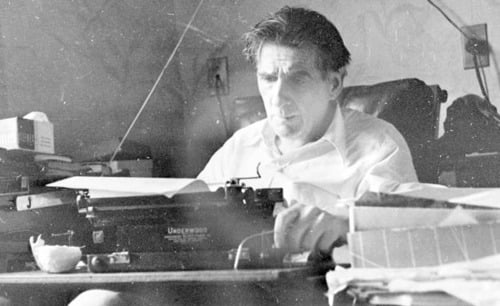Hermann Broch
By:
November 1, 2012

“Where I ask about the continued validity of language,” wrote critic George Steiner of Austrian novelist and philosopher HERMANN BROCH (1886–1951). “Where I try to understand how poetics border on music and mathematics.” Despite such eminent praise (Milan Kundera is another champion), Broch remains one of modernism’s most neglected giants. This is unfortunate because at least two of his works amply reward the substantial efforts of their reading. The first, the European war trilogy Die Schlafwander (1930–32) — translated as The Sleepwalkers (1932) by the estimable Scottish husband and wife team of Willa and Edwin Muir — is an intentionally jarring amalgam of history, philosophy and parody that bears comparison with Broch’s great contemporary, Robert Musil, and would influence such later philosophical novelists as William Gaddis and William Gass. Briefly imprisoned following the 1938 Anschluss, Broch — a Jewish-raised Catholic convert — fled first to Scotland, then America. While at Yaddo in 1939, Broch met Ohio-born poet Jean Starr Untermeyer, with whom he’d work five years on her inspired translation of his then work-in-progress, Der Tod des Vergil (The Death of Virgil, 1945). (In the interim, Broch’s mother, Johanna, was arrested and died in Thersienstadt concentration camp.) With the architectonic strength of an Anton Bruckner symphony and the linguistic fearlessness of Finnegans Wake, Broch assays The Aeneid to challenge literature, memory, meaning, “the recollective power of a never-ending present, the never ending constancy of holy childhood, which even now disclosed itself as a childish sham holiness.”
***
On his or her birthday, HiLobrow irregularly pays tribute to one of our high-, low-, no-, or hilobrow heroes. Also born this date: Charlie Kaufman.
READ MORE about members of the Modernist Generation (1884–93).
